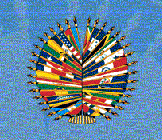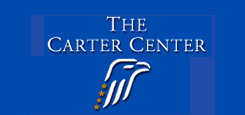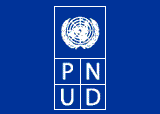The Washington Post
Venezuela Crisis Confronts OAS Chief
By Steven Ixer
Associated Press Writer
Tuesday, November 12, 2002; 3:44 AM
EL HATILLO, Venezuela –– President Hugo Chavez keeps telling his
adversaries they'll have to wait almost a year to hold a referendum on
his rule.
But his opponents haven't budged on demands for an early non-binding
plebiscite, saying the nation can't wait. Chavez says a referendum can
only be held halfway through his term – August 2003.
The political deadlock has left Cesar Gaviria, secretary-general of
the Organization of American States and mediator between the sides in
a tough spot.
Much is at stake in this nation of 24 million, where the political
stalemate and escalating violence are threatening to destabilize one
of Latin America's oldest democracies.
Some fear rising tensions could spill over, sparking a civil war in
the world's fifth largest oil exporter and major supplier to the
United States.
U.N. Secretary-General Kofi Annan and former President Carter, who won
the Nobel Peace Prize this year for over a decade of peacekeeping
efforts worldwide, are monitoring the situation in Venezuela.
Carter said last week that Gaviria "has my full confidence and support."
Serving as a mediator in political conflicts isn't new for Gaviria, a
former president of war-torn Colombia.
In the late 1980s, he played a key role in beginning peace talks with
Colombia's now extinct M-19 guerrilla group.
Praised by fellow Latin American leaders as a firm supporter of
regional integration and defender of human rights, Gaviria was elected
OAS secretary general in 1994 and re-elected in 1999.
Under his stewardship, the OAS played an instrumental role in reducing
border tensions between Belize and Guatamala, and between Honduras and
Nicaragua.
Gaviria has brokered face-to-face negotiations in Haiti an effort to
overcome the impasse over the disputed outcome of legislative and
municipal elections in May 2000.
In Peru, Gaviria and the OAS coordinated a broad national dialogue on
democratic reform after a political scandal led to president Alberto
Fujimori's fall from power.
In Venezuela, Gaviria is facing the worst crisis of his OAS tenure.
"The role of a facilitator is one of the biggest responsibilities of
my life next to my responsibilities as the president of Colombia,"
said Gaviria at the start of talks last week.
"Venezuela needs much more mutual respect ... Tolerance and respect
for different ideas are indispensable," said Gaviria. "There's only
one way to improve this path: moderating language and abandoning
quarrelsome rhetoric."
Late Monday opposition and government representatives left the
negotiation table after four hours with little progress made.
"This is a slow run. We can't hope for an immediate agreement," said
Alejandro Armas, a former Chavez ally-turned-adversary.
© 2002 The Associated Press
http://www.washingtonpost.com/wp-dyn/articles/A41892-2002Nov12.html


